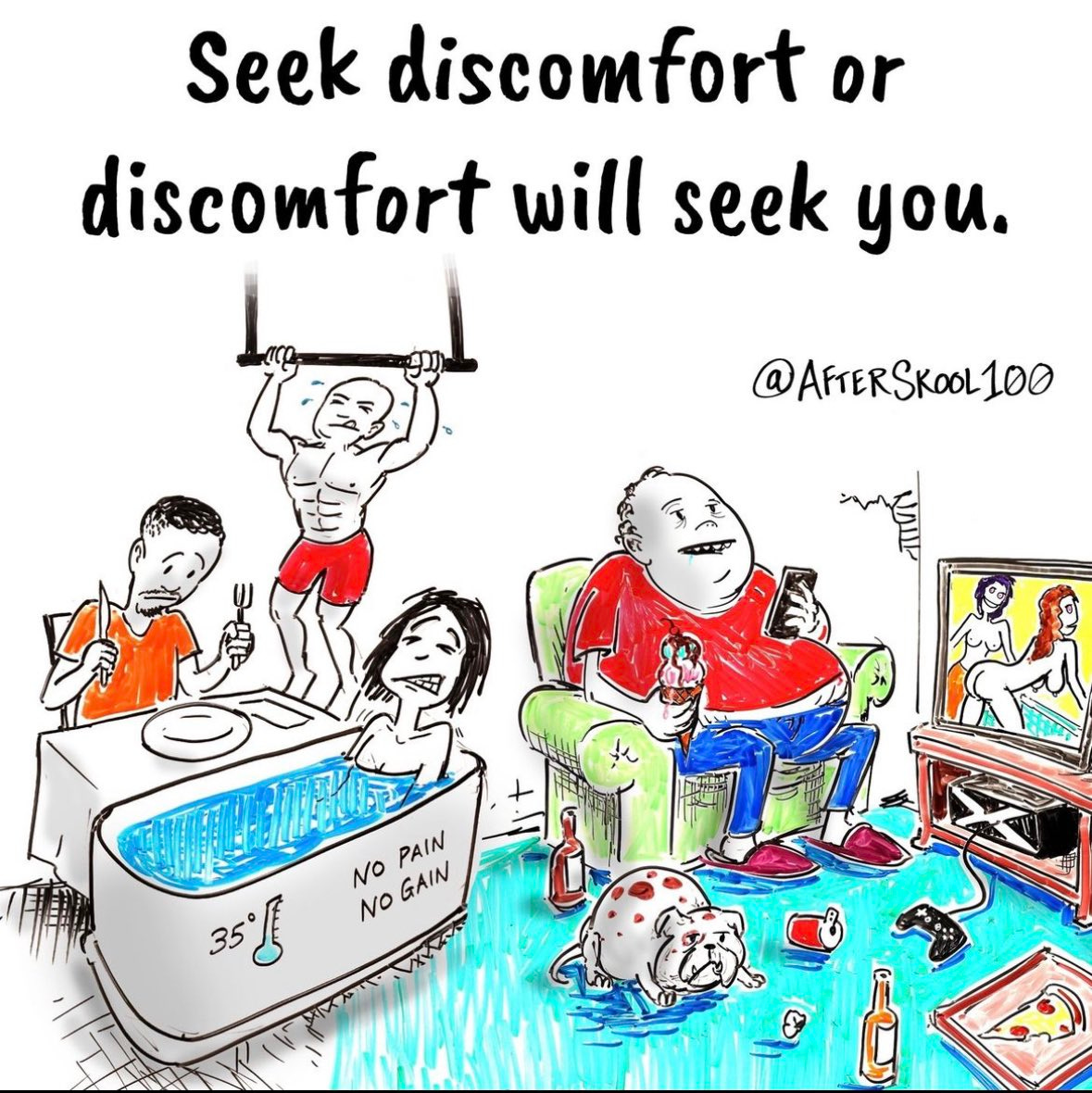Hey friends,
What if instead of tolerating discomfort (e.g., feeling awkward or uncomfortable), people actively sought it out? They reasoned that because discomfort is usually experienced immediately and is easy to detect, seeking discomfort as a signal of growth can increase motivation. Very interesting.
To motivate self-growth, whether in school, at the gym, or at your job, it’s best when you experience immediate gratification. If you loved an improv class, likely you’ll come back again. But the path to self-growth often involves short-term discomfort in the service of long-term gains. You might only learn to love your class, workout, or new job after trying it a few times.
When people can positively spin otherwise negative cues—reappraise their discomfort as a sign of achievement—those cues become more motivating.
Adopting "no pain, no pain" mentality
Taken cautiously, adopting a “no pain, no gain” mentality when you know something will make you feel awkward, sad, scared, or uncomfortable in the short-run can boost your motivation to stick with it until it feels right.
Discomfort often serves as a signal to stop whatever you’re doing. When you experience physical pain, you stop exercising. When you feel emotional pain, you withdraw from the experience. Because we have this intuitive response, discomfort is often a bad sign for self-growth.
However, discomfort is expected when taking on new challenges. Our research suggests that seeing discomfort as a sign of progress and actually seeking it out can boost your motivation in these situations. While a sharp physical pain is often a good reason to quit what you’re doing, a moderate muscle ache is a signal you’re getting in shape.
Likewise, moderate emotional discomfort is a signal that you’re developing as a person, and it often happens before you can detect the benefits of self-growth.
Discomfort is a sign of growth
Discomfort is an indication of learning.
Personal growth is sometimes uncomfortable; we found that embracing discomfort can be motivating. Use cognitive reappraisal to help yourself assign a new meaning to discomfort before you experience it, allowing it to serve as a source of motivation rather than a stopping point. Perceiving negative experiences as a sign of progress is particularly motivating when positive experiences are delayed and discomfort is immediate.
The dominant theory of physiology states that you need to produce a training stress to elicit an adaptation,” said endurance coach Grant Holicky. The discomfort we’re seeking is effectively the psychological equivalent. You need to cause mental discomfort in order to grow. It’s the mental version of training stress.
We do our best thinking during these times of discomfort; that’s when we grow. Deep thought inevitably leads to discomfort.
We are programmed that way.
Avoid the path of least resistance
So, when we find something to be easy—be it a skill or an endurance challenge—we can be sure we’re only at that lower level of thought. We aren’t growing. Seek the uncomfortable—not all the time, but every so often—and you can be certain you are creating transformative potential.
To put it in simpler but no less meaningful terms, reaching places of discomfort with the goal of pushing through those experiences yields self-understanding, which creates opportunities to recalibrate our capabilities.
Bottom line
By pushing boundaries we soon realise they’re not actually boundaries—we’ve been constrained by arbitrary endpoints, which begs the question: What if they were merely starting points? As you steadily extend where you’re able to go, and how you deal with adverse circumstances, you become comfortable being uncomfortable.
Importantly, you begin seeking out opportunities for discomfort and change, knowing that they’ll lead to small but meaningful alterations.
And that’s the very definition of transformation.
Stay mindful,
Pach Deng






